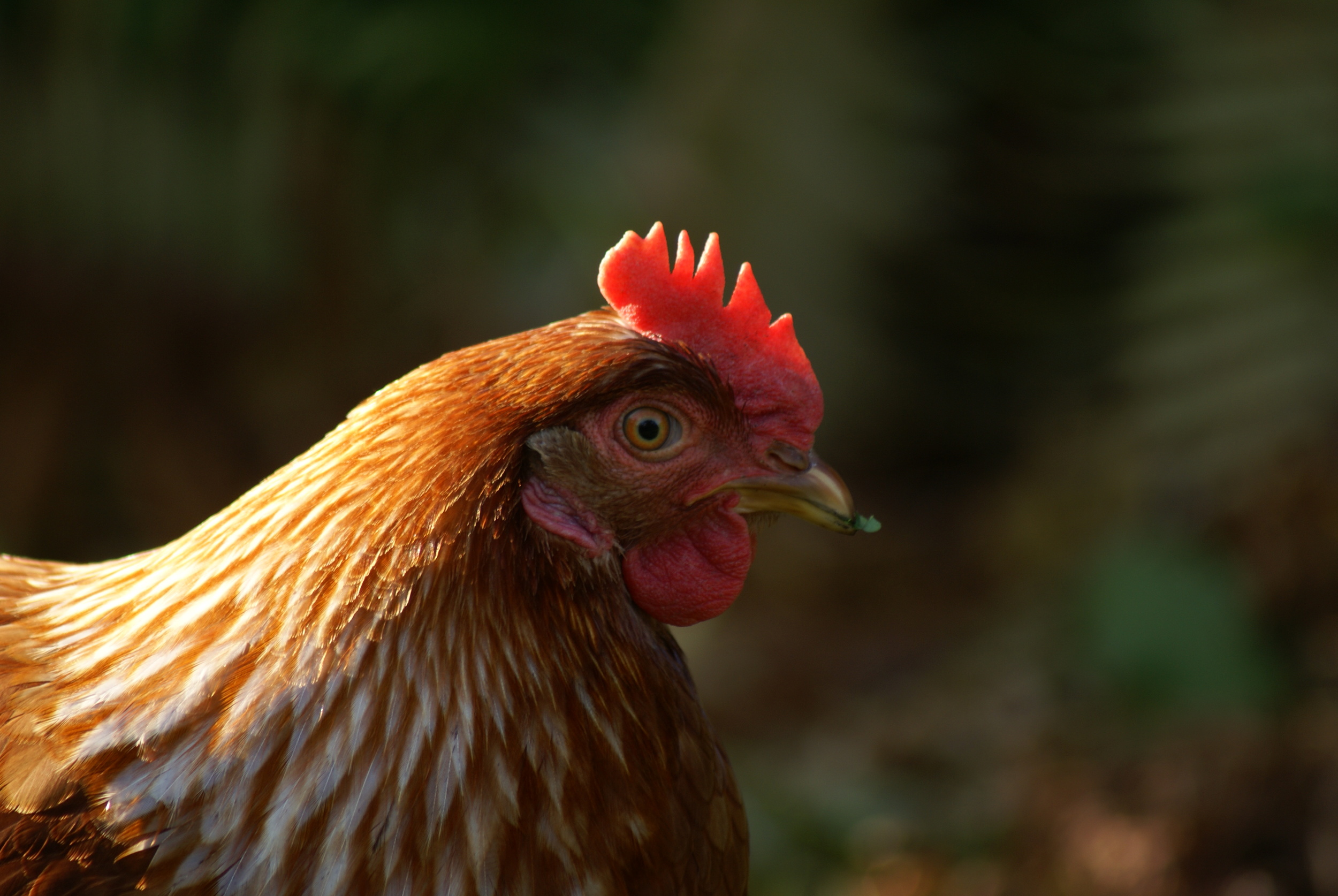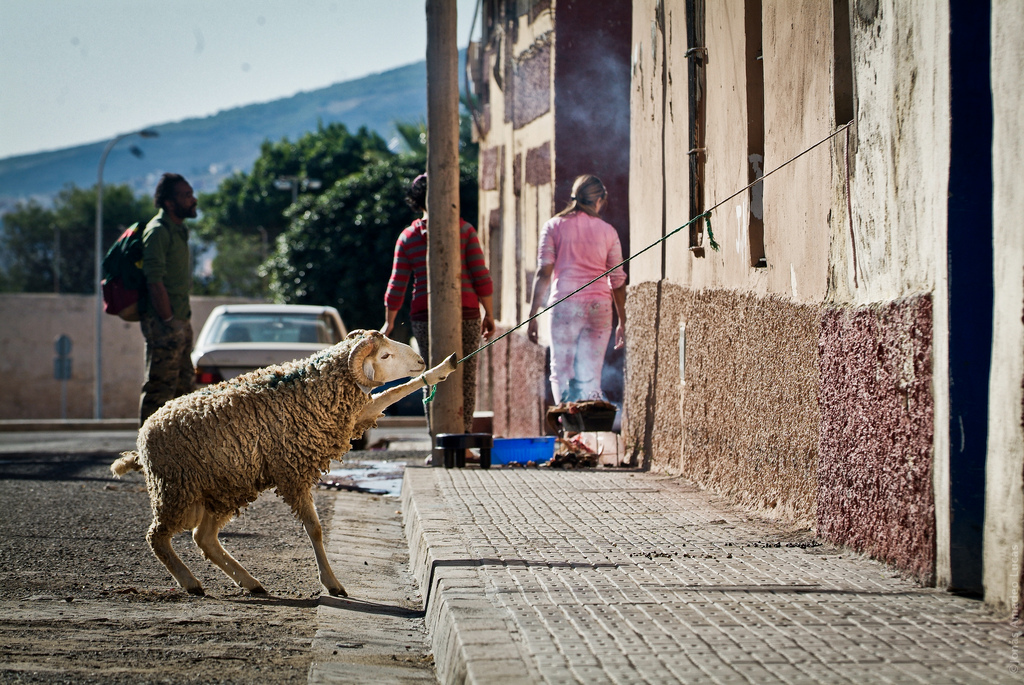By: Nadia Kadry
“It’s haram to be vegetarian, you’re denying what Allah has made permissible for you.”
This is a complaint I receive from family members when I am vocal about eating less meat. Whilst eating halal tayyib meat is permissible in Islam, there are compelling arguments made that adopting a vegan, vegetarian, or semi-vegetarian diet is more in accordance with the Prophetic tradition and Islamic principles than the current daily meat eating culture amongst many Muslim communities.
We can look directly to the diet of the Prophet (pbuh) who reportedly only ate meat occasionally, to support maintaining at least a semi-vegetarian diet today. It is a forgotten Sunnah of our beloved Prophet (pbuh) to keep meat consumption minimal, treating it as a luxury rather than a daily necessity. During his caliphate, Umar ibn al Khattab (ra) prohibited people from eating meat two days in a row, warning that meat has “has an addiction like the addiction of wine.” We can see a huge divergence when we compare many Muslim majority cultures’ meat eating habits to that of the Prophet’s (pbuh).
Eating lawfully and wholesomely
“O mankind, eat from earth what is halal (lawful) and tayyib (good/wholesome)…” (Holy Quran 2:168)
From a strictly religious standpoint, for meat to be considered halal tayyib and therefore permissible, the process needs to meet requirements beyond what many understand as halal as the draining of the blood and the recitation of Allah’s name at the time of slaughter. The other requirements needed for meat to be tayyib and thus lawful to eat, are less known.
The animal must be raised in a humane and wholesome environment, be fed and given water prior to slaughter, and not be stressed, abused or mishandled, nor witness another animal being killed, among other requirements. The reality is that most of today’s meat, even when labeled “halal,” comes from battery farms where the animals endure cramped conditions and cruel and inhumane practices and are injected with harmful steroids and hormones.
Animal welfare is essential in Islam with the Prophet (pbuh) often preaching that animals be treated with the utmost compassion, mercy and kindness. There is thus a stark contrast between Islam’s stated animal ethics and the poor conditions that thousands of mass-farmed animals endure everyday. It is worth wondering whether the Prophet (pbuh), who would curse the one who mistreated an animal would approve of such practices.
Environmental effects of meat production
“Do not pollute the earth after it has been (so) wholesomely (set in order) …” (Holy Quran 7:56)
Animal agriculture reportedly accounts for 51% of global greenhouse gas emissions, with no other single human activity having a greater impact on the planet. This is unsurprising when you think about all the land, vegetation, energy and water required for raising animals for consumption, especially considering our growing population and appetites. Eating meat is a hugely inefficient transfer of energy, as the amount of food the world’s cattle consumes is reportedly equal to the caloric needs of 8.7 billion people.
This illustrates the huge inequality our food systems sustain, as grains that could nourish those in poverty are being used to feed livestock to then be consumed by wealthier people. The increased demand for grains puts humans in competition with animals and drives the price for these grains up, further compounding the global food crisis.
Humans are the successors of the Earth
“And it is He (Allah) who has made you successors upon the earth…” (Holy Quran 6:165)
The natural world is a fundamental part of Islam; the whole of earth has been created a place of worship for us and the Qur’an glorifies nature and wildlife frequently. The Qur’an tells us that we were appointed as stewards on Earth, and thus have a duty to protect our planet, Allah’s creation, from environmental degradation. This includes protecting against the mass deforestation that the meat industry requires and thus protecting the habitats of much wildlife. More importantly, we need to recognize the impact of global greenhouse gas emissions on our fellow humans, mostly those in the global south who disproportionately suffer the effects of climate change whilst contributing the least.
Reviving our relationship with the environment
“…Eat and drink from the provision of Allah, and do not commitabuse on the earth, spreading corruption” (Holy Quran 2:60)
Following the principles of our religion, we ought to reevaluate and revive our relationship with the environment and consider how our diets, among other things, impact the earth and other people. I will be the first to admit that a transition to a more ethical and meat-free diet is difficult and requires time, thought, and money, which is a luxury not everyone has.
Conversations about the environment, animal welfare, our health and reviving the Sunnah of the Prophet (pbuh) need to be started which can help enable a cultural shift amongst Muslim communities in the way we view and eat meat and our participation in harmful food systems. This need not involve shaming anyone’s diets or lifestyles, but rather in showing the perfect harmony a vegetarian diet has with Islam’s principles in the modern day.
“The point is to live consciously and intentionally—to walk on the path of continual, voluntary self-surrender, for this is what it means to be in Islam. First for the Creator, then for our own spiritual development, for the good of the beings we share this world with, and for the continued health of this delicate world itself.” – Ezra Ereckson
On a practical level, we can make greater effort to lessen our meat consumption to a couple of times a week, month or year. This can involve designating a specific day a week to eating meat. Where possible and affordable, one should buy organic and locally sourced foods, which extends beyond meat and animal products. Ultimately, we need to become more conscious of the way we live and eat and try to keep in accordance with the ethics of Islam.
This article originally appeared on The Muslim Vibe on October 20th, 2016.







